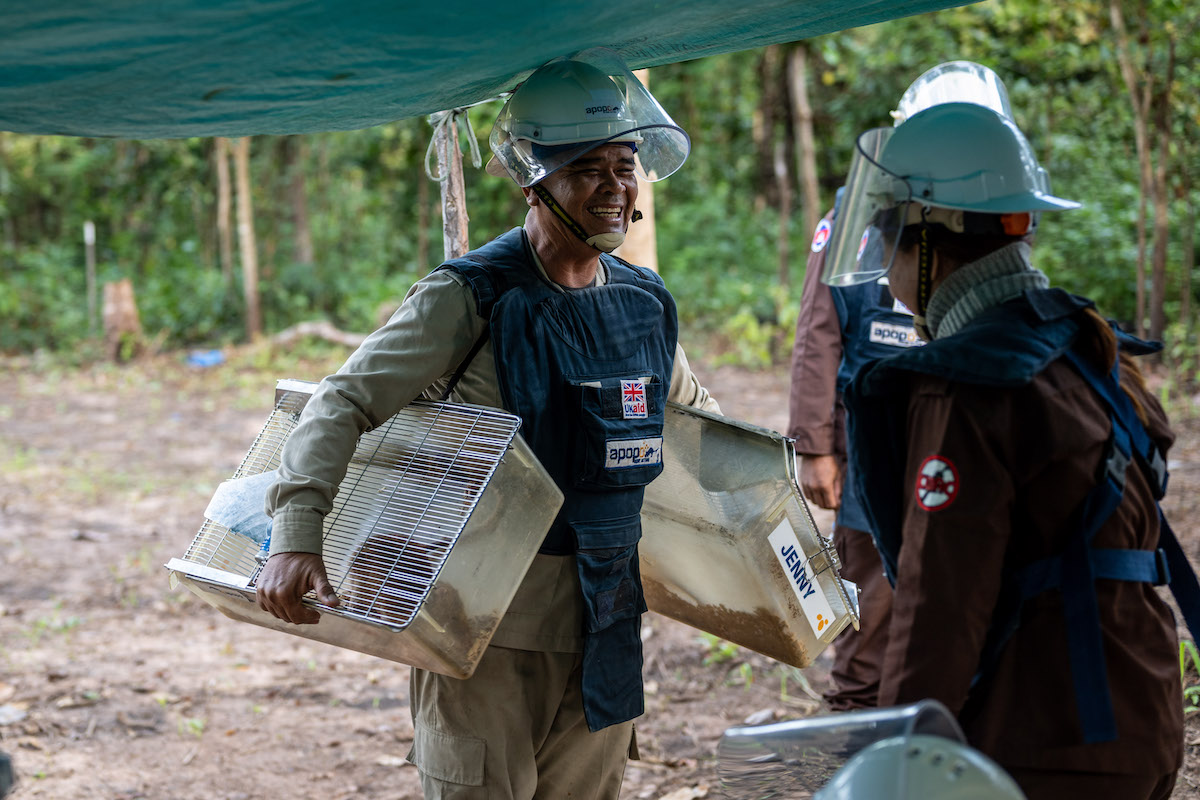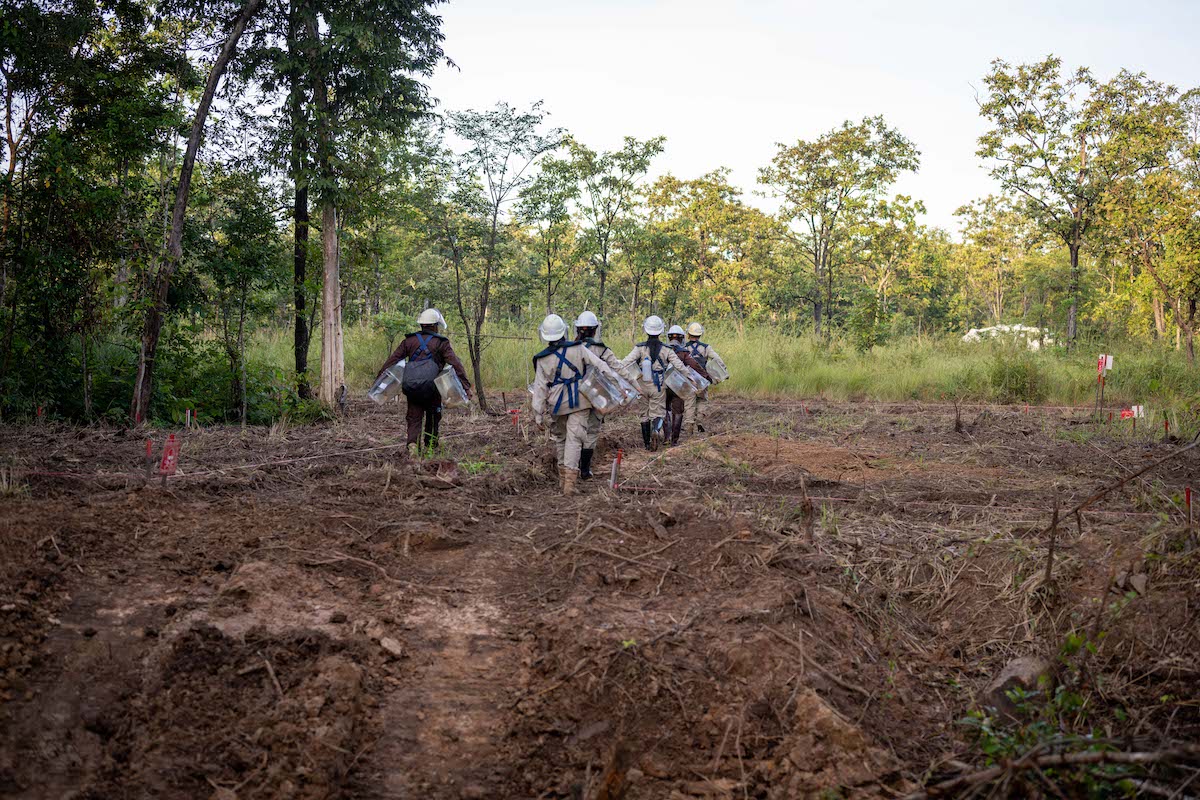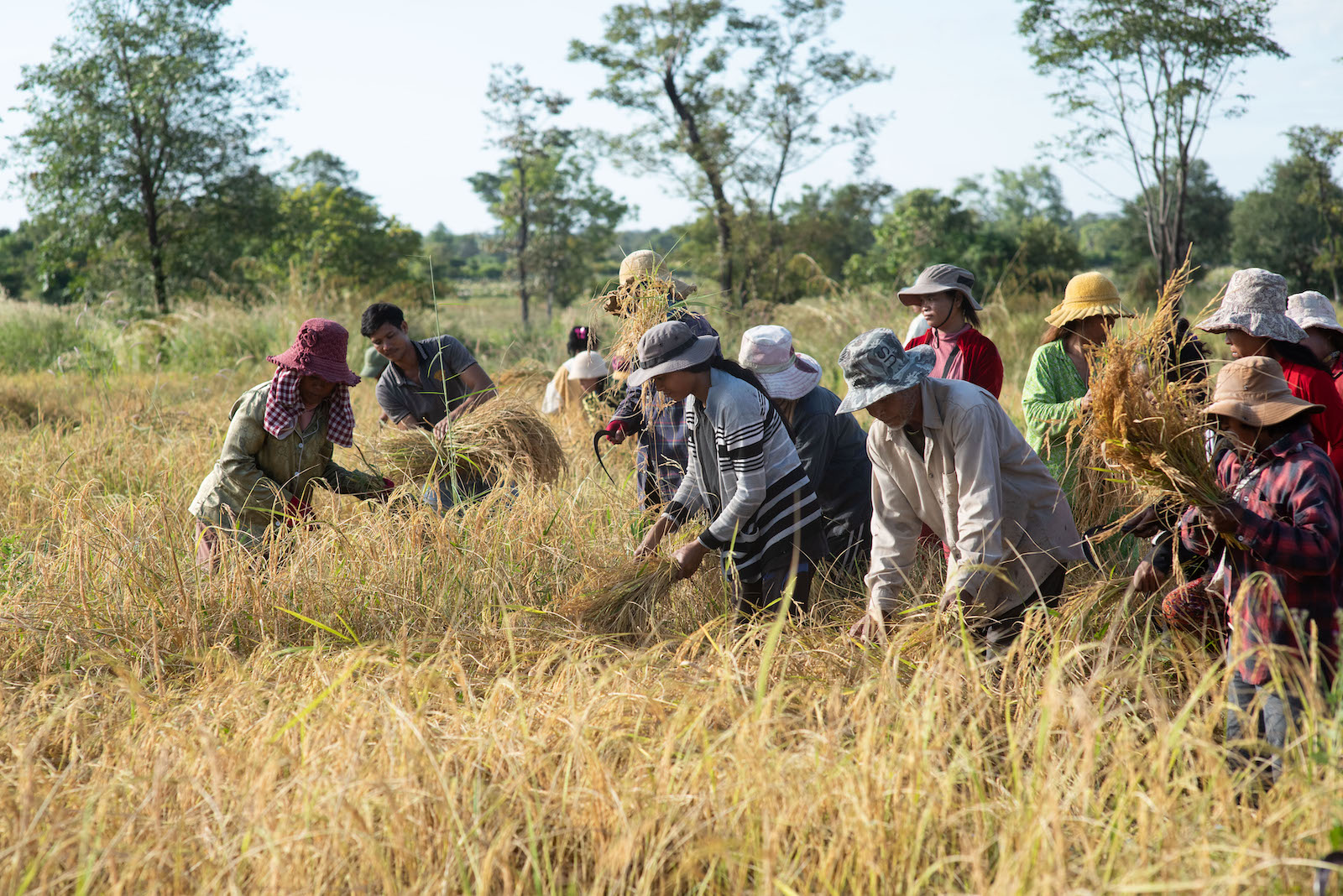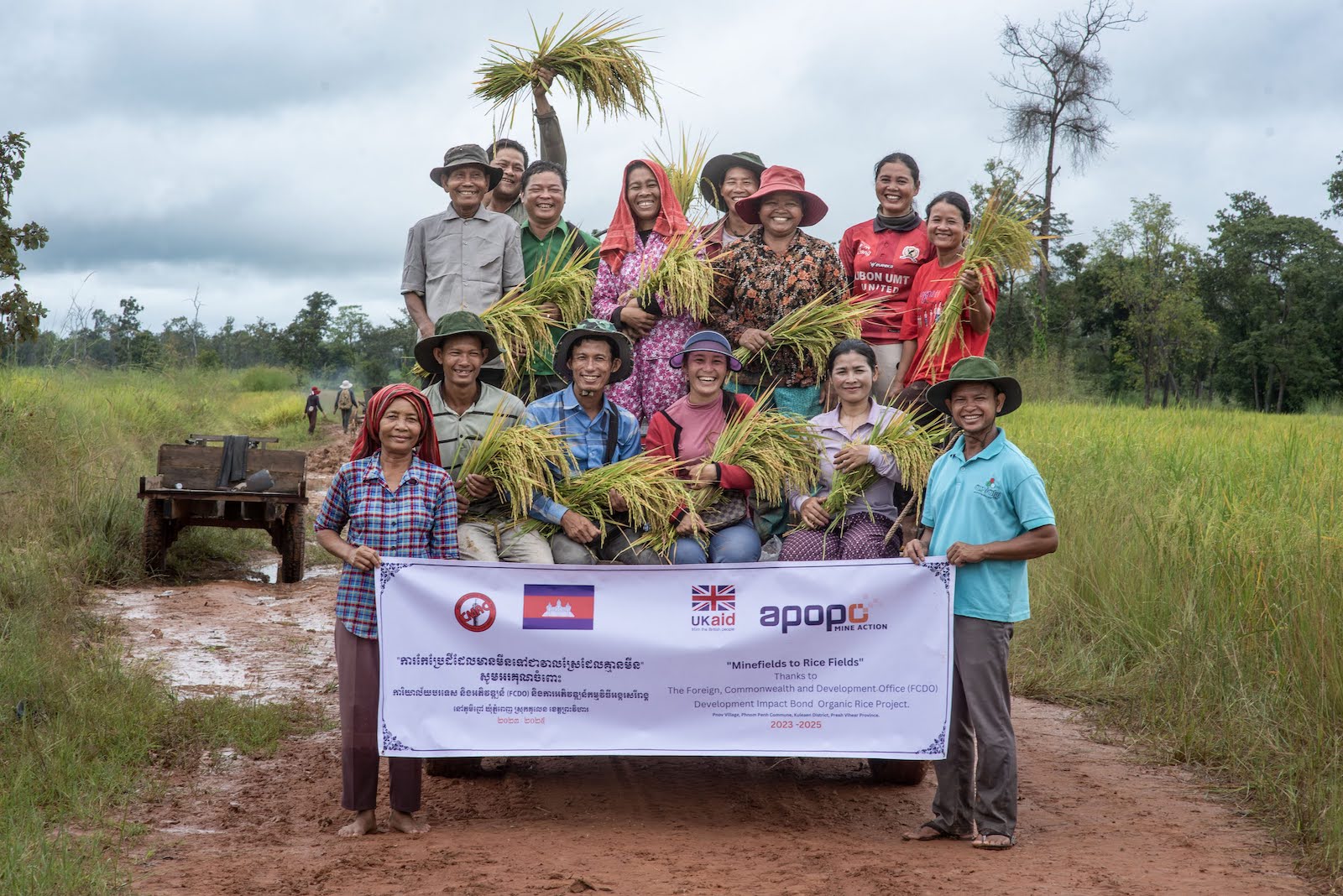The First Ever Development Impact Bond (DIB) linking Mine Action with Agriculture
APOPO is proud to be the primary implementer in the world’s first-ever Development Impact Bond for Mine Action. Working together with our agricultural development partner, Cambodian Institute for Research and Development CIRD, and outcome funder the UK government’s Foreign, Commonwealth and Development Office (FCDO), APOPO and the HeroRATs are turning former minefields into rice fields in Preah Vihear province, Cambodia. The end goals of the project are to clear over 5.9 million square meters of land of landmines and other explosives and support beneficiaries to plant higher yielding organic rice. This will increase the farming income of at least 150 farming families in Preah Vihear between April 2023 and March 2026.
What is a DIB?
Development Impact Bonds (DIBs) provide upfront funds from private investors who earn a return if the program is successful. This return is paid by a third-party donor, which is usually a government. The outcomes to be measured and paid against are agreed at the outset and independently verified, as they are achieved. There have been an estimated 290 DIBs issued globally, but Minefields to Rice Fields is the first ever DIB in the demining sector. As a known innovator in the field of Mine Action, APOPO is honoured to be the primary implementer.
Minefields to Rice fields

An initial up-front investment of $360K was provided by three private foundations and impact investors in the United States and the Netherlands. The FCDO provides up to $2.7million of outcome funding as APOPO clears contaminated land, and targeted agricultural support works towards increasing farmers’ income through the growth and sale of higher quality, premium rice. As APOPO’s HeroRAT teams and its Agricultural partner CIRD, development program achieve their impact targets, the FCDO pays out working capital to continue executing the project. If all outcomes are realized, the investors’ capital, and a modest return, are given back to the investors at the end of the project. Working like this allows the investors to take on the initial implementation risk while ensuring the UK government’s taxpayer money is only used for desired development outcomes.
APOPO worked closely with UK firm Social Finance to design and secure funding for Minefields to Rice Fields.
The Cambodian Institute for Research and Development
The Cambodian Institute for Research and Development (CIRD) is APOPO’s agricultural development partner for Minefields to Rice Fields. With over 20 years of experience supporting farmers, CIRD has a strong record of linking smallholders to high-value markets. They were instrumental in securing the Geographical Indication (GI) for Cambodia’s famous Kampot Black Pepper, proving their ability to bring local products to international recognition. Today, CIRD works with a network of 43,000 farmers across Cambodia, helping many achieve sustainable income growth. Their expertise ensures that APOPO’s project not only boosts farmer incomes through organic rice cultivation but also builds climate resilience and promotes environmentally friendly farming.
Why we are doing this

Cambodia is one of the most mine-affected countries in the world, with an estimated 350km² of its land still contaminated. Landmines compromise the safety of local communities and prevent land from being used for income-generating activities like agriculture.
Rice farming is at the center of Cambodia’s large agricultural sector, accounting for more than half of the country’s agricultural gross domestic product (GDP). However, rice productivity is relatively low compared to neighbouring countries, particularly in affected regions like Preah Vihear. In Preah Vihear, rural smallholder rice farmers typically do not have the resources to break the low-input subsistence farming cycle and face challenges in accessing rice markets or investing in higher-yield organic rice varieties. This hinders their ability to sell their rice at a reasonable price. These challenges are even more severe for farmers with land that has been or is still blocked off because of landmines.

A model for the future?
This DIB is a two-year pilot with the aim of scaling up within Cambodia and replicating the model in other mine-affected countries. In 2024 FCDO launched a second DIB project with Danish Church Aid in Syria, aiming to try out the model in a higher-risk, less stable environment. FCDO, APOPO, and Danish Church Aid have established robust learning agenda to gather critical information to evaluate the performance and cost-effectiveness of the model, within mine action, and understand what features of the DIB model should be scaled across mine action moving forward. Pending continued success and available funding, APOPO and FCDO are hoping to scale the initiative to to 1000+ mine afflicted farming families under a new 3-5 year project that would also incorporate syntropic farming, coop formation, and other new income-enhancing features beginning in 2026.

